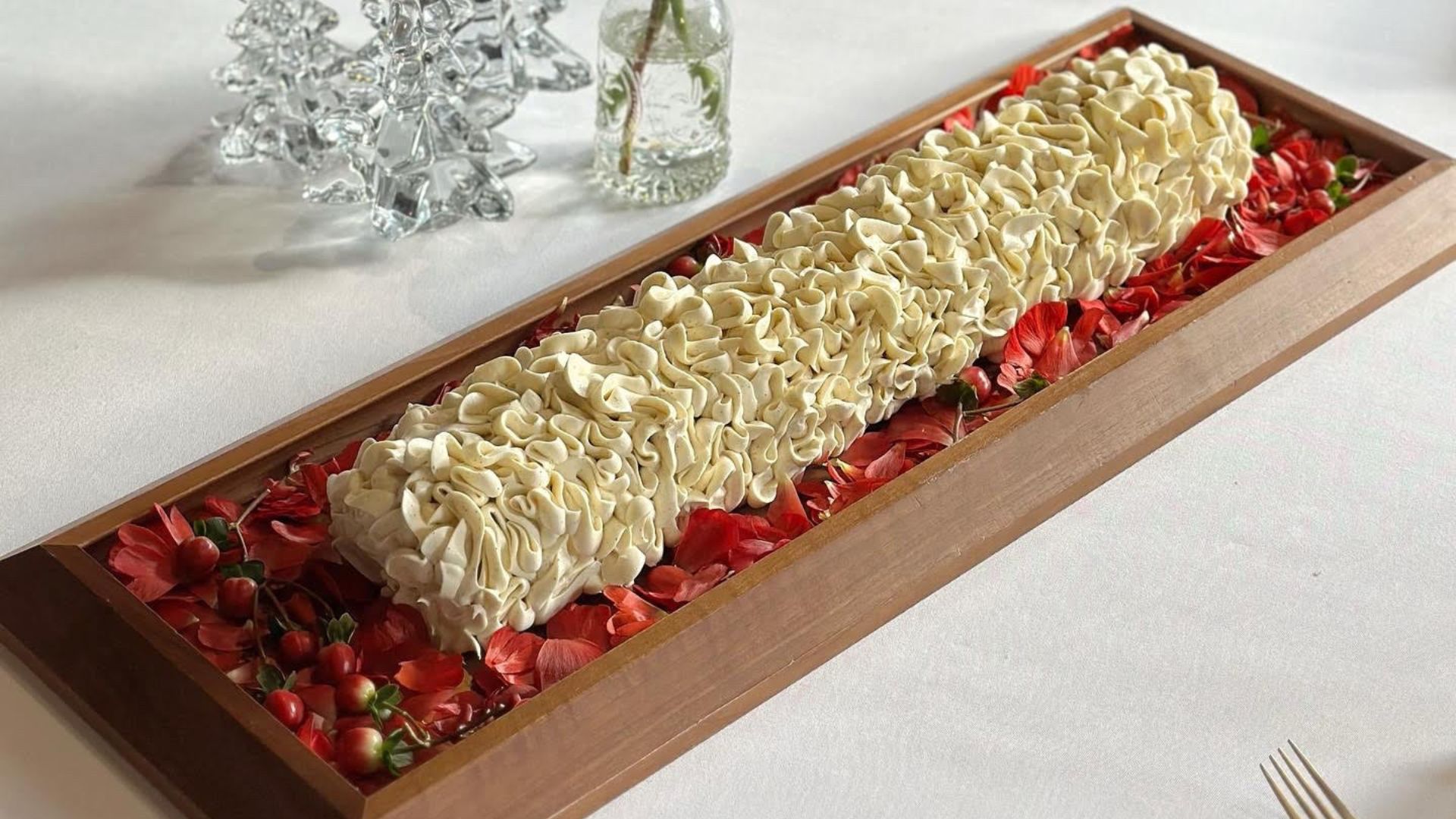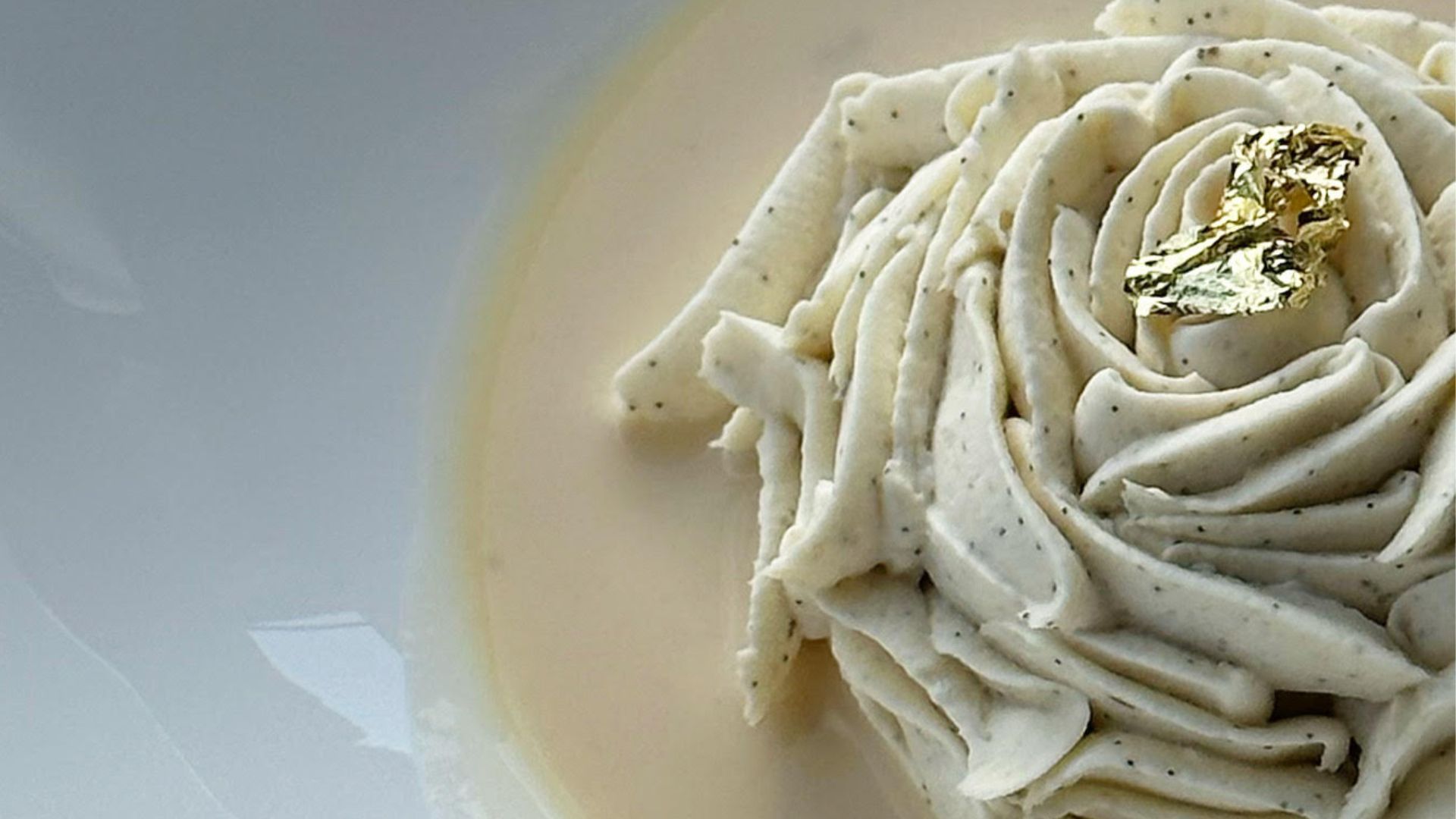Could La Dame de Luca be Moldova’s most promising pastry chef?
I met Marina Luca for the first time online; on Instagram as it is most of these days. She somehow went viral, overnight and suddenly, the entire Moldovan community was speaking of her creations.
It was her wit, her honesty and independence that lured me in at first. So as Marina embarks on an adventure away from home. in Gstaad, Switzerland, we take a glimpse at her journey.
Luca Marina was born in Moldova and is the only Moldovan to graduate from the Alain Ducasse Academy. Marina’s work experience includes Plaza Athénée Paris, the Dorchester London, Dominique Ansel, Pascal Lotier (the mentor of Cedric Grolet) and more. A creative process born out of a pandemic, but above all an idea that was due to come to life, one way or another. In 2020, La Dame de Luca, Haute Couture Desserts was born.
Talking to Chef Marina Luca
W: What is your philosophy when it comes to the way you express yourself in the kitchen?
ML: I recreate desserts which are classic in style. In my opinion, classicism is forever. The classic becomes history, a culture we should promote and speak about more often.
W: If we are to talk to you as a pastry chef, how do you differentiate yourself from your peers?
ML: I am always loyal to artisanal techniques. The authenticity of pastry chefs is being lost by using industrial moulds, shortcuts to make the process quicker, yet not better. In this process, we lost touch, the dexterity of our hands and with it the art form of being a pastry chef.
In my desserts I use as little sugar as possible, working with seasonal ingredients only, and my desserts are fresh, made only a few hours before they are being purchased or enjoyed in the restaurant. The client should feel, smell and taste all the textures and flavours to the maximum.
I take great pride in using seasonal ingredients only; you will not find strawberries and blackberries on the winter menu. In the cold season, citrus, chocolate, exotic fruits and nuts are the stars of the show. This makes things even more complicated, but I thrive on a challenge which can push my creative process further. As the decoration needs to be created and trained absolutely manually, we do not use collars. Respectively, you work twice as hard, in terms of time and labour. These aspects complicate and make the final product much more expensive. But hopefully, in the long run, they have the role of educating and developing the gastronomic culture and the consumer’s palette.
W: All of your desserts are unique and you are always trying to play with new concepts. Where does your inspiration come from?
ML: I create signature desserts inspired from life, people, nature and experiences. A dessert with a story behind is a dessert full of love and value. I instinctively sense to process the feelings by doing it through creativity. As a way of coping with the most intense emotions.
W: Do you strive for perfection in your work?
ML: Food doesn’t have to look perfect or be impeccable. Sometimes looks can be deceiving…But what stands out is the moment that first spoonful hits your mouth; an explosion of deliciousness and quality, becoming an experience…
W: What is your most important mission as a pastry chef?
ML: To promote and develop a culture where deserts are regarded like fine wine. There is a right temperature for wine and the same applies to dessert. I hope to enhance palates so I can help people love what they used to hate.
What would you like to see more of in the food scene and the way that people enjoy eating out?
Gastronomy has evolved considerably, from it being a necessity or a socialising environment to the gastronomic theatre art form of emotion. Food has become a culture, a way to showcase how cultivated you are. Going to a Michelin starred restaurant and going to the opera? You will find the same kind of clientele doing both.
I embrace craftsmanship and I want to see it appreciated in all ends of the market and not just in Michelin restaurants. I want to be able to explain to my audience that what I do is art, hard work and it is not cutting corners. In chess, the knight is the only game piece that needs to be carved and created by hand. I want to see more knights on the food scene chess board.
Chef Marina Luca has strong principles
Chef Marina Luca has strong principles and I hope she has the strength and that the public is kind enough to respect them. As she remains committed to her art, the seasonality of the ingredients, the complexity and authenticity of the recipes, the craftsmanship, the freshness and the way of serving, I hope to see more people appreciate this hard work stemmed out of a passion I so very often see in the people I meet in the hospitality world.



